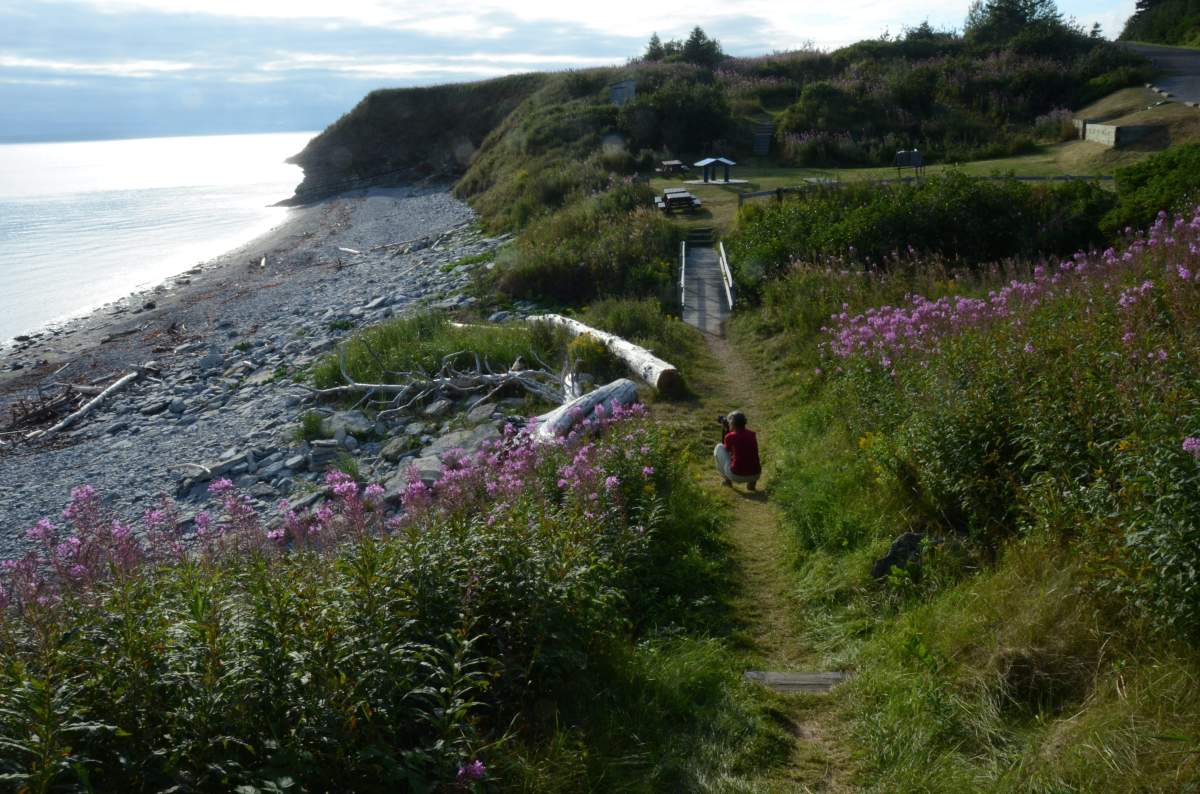Quebec’s annual two-week construction holiday is in full swing, and with many Quebecers staying closer to home this summer because of COVID-19, towns in the Gaspé region are seeing an influx of tourists drawn to the charming seaside landscapes.

But the mayor of Gaspé, Que., a popular tourist destination on the Gaspé peninsula’s eastern coast, is concerned some visitors are camping anywhere they find space, harming the environment and upsetting locals.
“We’re seeing a lot of tents on public beaches, in forests, on private land without the approval of the owners of that land,” Mayor Daniel Côté said in an interview Thursday.
Côté said he had high hopes tourists would come to the Gaspé this summer despite the pandemic. Authorities had closed off the region to outsiders earlier this year to stop the spread of COVID-19.
But Côté said he was caught off guard by the number of tourists who arrived without hotel or camping reservations.
“People invaded public beaches and decided that that’s where they would set up camp,” he said.
READ MORE: Quebec road safety blitz begins as police expect more holiday traffic due to COVID-19
A series of photos posted on Facebook Wednesday showed tents and camping chairs lined up along a beach, as well as empty beer cans and other garbage littering the sand. The Canadian Press could not independently verify the photos, which purportedly were taken at Haldimand Beach in Gaspé.
The post was shared nearly 600 times as of Thursday afternoon and garnered over 300 comments, many of which criticize the tourists and demand the town take action. Côté said public beaches are under provincial authority, so the municipality has limited means to intervene.

Get weekly health news
But he said Gaspé intends to hire people to patrol busy public areas and inform visitors of the rules, which include a ban on driving vehicles on public beaches and to safely dispose trash.
The town is also working with Quebec provincial police and the nearby Mi’kmaq Nation of Gespeg to protect the area, Côté added. “As a municipality we don’t have coercive power to force people to leave the areas … so we’re going to go with raising awareness.”
In a statement Thursday, officials with the Mi’kmaq Nation of Gespeg said unregulated camping in the area had gotten “out of control” and was negatively affecting local wildlife and ecosystems.
“On the beaches, washed up wood, which is important for slowing erosion, is being burned without knowledge of its consequences,” the statement reads. “Migratory birds are being disturbed on their nesting grounds. We cannot even keep track of the amount of waste that litters the waters, the beaches, the parking lots, and rest areas.”

The regional public health authority launched an awareness campaign this month to prevent the potential spread of COVID-19 in the Gaspé region amid the wave of tourists.
Small teams are being deployed across the region to make sure people are respecting public health guidelines, explained Clemence Beaulieu-Gendron, a spokeswoman for CISSS de la Gaspesie. She said several local mayors have asked the public health teams to come to their towns.
So far, a team of four outreach workers is working in the area of Sainte-Anne-des-Monts, on the south shore of the St. Lawrence River, while others have been sent to Gaspé, Percé, and Carleton-sur-Mer.
“They’re not police. It’s important to say that,” Beaulieu-Gendron said about the workers, in an interview. “It’s really to raise awareness to avoid a second wave, or in any case, to decrease the risk of spreading the virus in the region during summer vacation.”
Lily Gang, the owner of Motel-Camping Fort Ramsay in Gaspé, said this summer seems just as busy as in past years. Her business counts 32 motel rooms and 42 camp sites, which normally can accommodate both trailers and tents.
READ MORE: Quebec will permit up to 250 people at indoor, outdoor events next month
But Gang said she chose not to take any reservations for tent camping this year because she felt uneasy with clients using the communal restrooms and showers during the COVID-19 pandemic. She said she also feared campers could put her cleaning staff at risk.
“I don’t know how to handle so many people together,” Gang said in an interview.
Côté said the region typically receives 800,000 visitors every summer, but this year he expects more. He said he intends to speak to the provincial government this fall to make sure the public beaches aren’t overrun again next year.
In the meantime, he encouraged tourists to plan their trips to the region ahead of time — and only visit if they have reservations. “It will make us very happy to welcome you, as long as you behave respectfully towards people in the area.”








Comments
Want to discuss? Please read our Commenting Policy first.